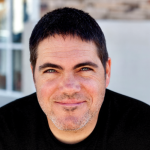When I decided to start freelancing, I wanted to position myself as a specialist in WordPress performance and optimization. It wasn’t necessarily because I loved that work more than anything else, but because I thought having a clear niche would make me stand out more. I wanted something specific to offer—a focus that would help people immediately understand what I did and who I helped.
But what I learned quickly was that most people didn’t really know what “performance and optimization” meant for them. It was something mostly unfamiliar. Even when I explained it in simpler terms, like “I make WordPress websites faster” or “I help sites run better,” it didn’t seem to connect. People would nod, but it didn’t lead to real conversations. It felt like I was speaking a language that only made sense to other developers.
Over time, I noticed that when I said I was a “Web Developer,” people immediately understood what I did and conversations started. It was something familiar, something that made more sense to them. That broader description would push me out of my niche and back into the world of being a generalist—but it also opened doors to deeper conversations. Once that door was open, I could talk more about performance and optimization.
This shift has been an acceptance period for me. I put a lot of time—if you’ve followed my blog at all—this year into developing myself as a specialist and shaping that identity, only to realize that the label was doing more to confuse than connect. Now I find myself operating in a saturated space of generalist developers rather than having a niche. But it’s also a space where people understand what I do easier, and that understanding leads to meaningful discussions about how I can help them.
My offerings have evolved because of that. Instead of focusing solely on optimization, I now do custom WordPress development, help fix tough WordPress website problems, and even build non-WordPress sites when it makes sense. Within that broader work, performance and optimization are still a big part of what I will bring to the table—but they’re now part of a larger conversation. Again, it’s been hard to accept, but it’s been important to adapt.
What I’ve learned is that clarity and simplicity sometimes matter more than niching down. I spent a lot of time developing my niche just to find it didn’t work well. It sucked, but maybe—sometimes—the best way to talk about what you do is to meet people where they are—and let the deeper parts of what you do come out naturally in the conversations that follow.
